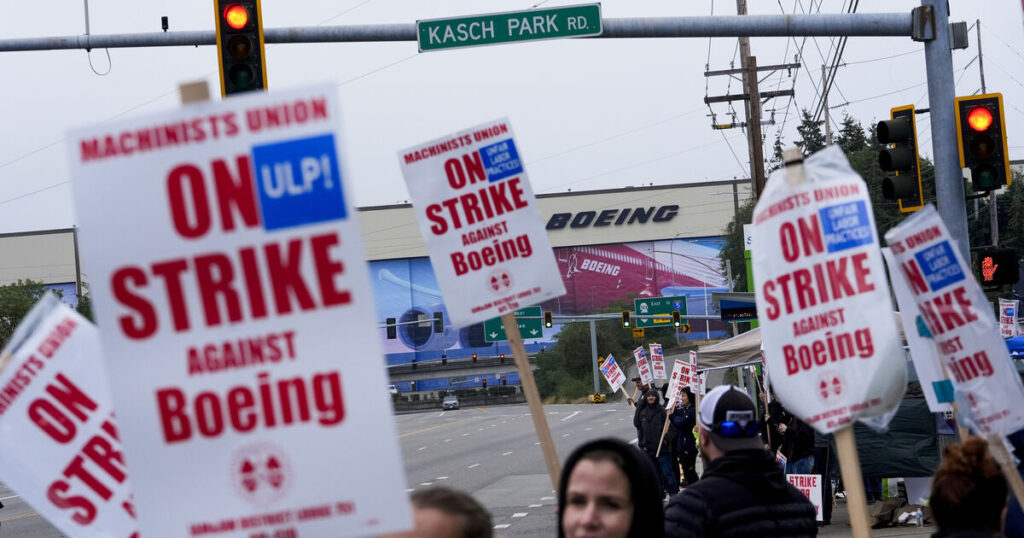Thousands of workers at three Boeing manufacturing plants in the Midwest have initiated a strike, potentially hindering the company’s efforts to stabilize its financial standing. These plants are responsible for developing military aircraft and weapons systems.
The strike commenced at Boeing facilities in St. Louis, St. Charles, Missouri, and Mascoutah, Illinois. Approximately 3,200 local members of the International Association of Machinists and Aerospace Workers rejected a revised four-year labor agreement on Sunday, prompting the strike, according to the union.
“IAM District 837 members build the aircraft and defence systems that keep our country safe,” Sam Cicinelli, the general vice president of the union’s Midwest division, said in a statement.
“They deserve nothing less than a contract that keeps their families secure and recognises their unmatched expertise.”
The vote followed a week-long cooling-off period after the machinists turned down an earlier contract proposal. This proposal included a 20% wage increase over four years and 5,000 dollar ratification bonuses.
Boeing anticipated the strike after workers rejected its latest offer, which did not increase the proposed wage hike, as warned over the weekend.
However, the proposal did eliminate a scheduling provision that would have impacted workers’ ability to earn overtime pay.
“We’re disappointed our employees rejected an offer that featured 40% average wage growth and resolved their primary issue on alternative work schedules,” said Dan Gillian, Boeing Air Dominance vice president and general manager, and senior St Louis site executive.
“We are prepared for a strike and have fully implemented our contingency plan to ensure our non-striking workforce can continue supporting our customers.”
Boeing’s Defence, Space & Security business constitutes over a third of the company’s revenue.
Boeing CEO Kelly Ortberg indicated last week that the impact of this strike by machinists building fighter jets, weapons systems, and the US Navy’s first carrier-based unmanned aircraft would be considerably less than a previous work stoppage. Last year, 33,000 workers who assemble commercial jetliners went on strike.
“The order of magnitude of this is much, much less than what we saw last fall,” Mr Ortberg said. “So we’ll manage through this. I wouldn’t worry too much about the implications of the strike.”
The 2024 strike shut down Boeing’s factories in Washington state for more than seven weeks during a challenging period for the company.
Boeing faced several federal investigations last year after a door plug detached from a 737 Max plane mid-flight on an Alaska Airlines flight in January.
The Federal Aviation Administration (FAA) imposed limits on Boeing’s aircraft production, stating that these limits would remain in place until the agency was confident in the company’s manufacturing quality safeguards.
The door-plug incident amplified concerns regarding the safety of the 737 Max. Two of these planes crashed within five months of each other in 2018 and 2019, resulting in the deaths of 346 people.
Mr. Ortberg stated that the company has gradually increased production to meet the FAA-mandated 737 Max production cap of 38 per month. He anticipates seeking regulatory approval to exceed this limit later this year.
Boeing’s second-quarter revenue showed improvement, and its losses narrowed, according to a report released last week. The company reported a loss of 611 million dollars in the second quarter, compared to a loss of 1.44 billion dollars during the same period last year.
Shares of Boeing Co. experienced a decline of less than 1% before the start of trading on Monday.


